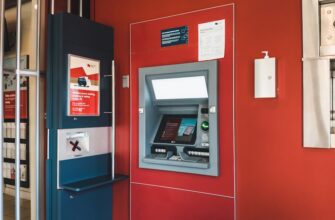The explosive growth of Non-Fungible Tokens (NFTs) has created new wealth opportunities in the Philippines, but it also brings complex tax obligations. Many Filipino NFT traders unknowingly risk severe penalties by misunderstanding how the Bureau of Internal Revenue (BIR) treats digital asset profits. This guide breaks down NFT taxation rules, penalty risks, and compliance strategies to protect your earnings.
- Understanding NFT Taxation in the Philippines
- How NFT Profits Are Taxed: Capital Gains vs. Income Tax
- Common NFT Tax Penalties in the Philippines
- Calculating Your NFT Tax Liability
- How to Avoid NFT Tax Penalties
- Frequently Asked Questions (NFT Taxes Philippines)
- 1. Is NFT trading taxable in the Philippines?
- 2. What tax rate applies to NFT profits?
- 3. How do I report NFT earnings to BIR?
- 4. What penalties apply for unpaid NFT taxes?
- 5. Are losses deductible?
- 6. Do foreign platform earnings count?
Understanding NFT Taxation in the Philippines
The BIR classifies NFTs as capital assets under Revenue Regulations No. 9-2021. Profits from NFT sales trigger tax liabilities just like traditional investments. How your gains are taxed depends on your trading frequency and intent:
- Occasional Sellers: Taxed under Capital Gains Tax (CGT) rules
- Professional Traders: Treated as business income subject to graduated rates
- NFT Creators: Royalties are taxed as regular income
How NFT Profits Are Taxed: Capital Gains vs. Income Tax
Capital Gains Tax (CGT): Applies if you sell NFTs held as investments. You’ll pay 6% of the net gain (selling price minus acquisition cost and selling expenses) or 4% of gross selling price, whichever is higher. Example: Selling an NFT bought for ₱50,000 for ₱100,000 with ₱5,000 in fees results in ₱45,000 taxable gain (₱100,000 – ₱50,000 – ₱5,000). At 6% CGT, you owe ₱2,700.
Income Tax: If the BIR deems you a “habitual trader” (based on transaction volume, frequency, or business registration), profits become part of your taxable income. Rates range from 0% to 35%, or you may opt for the 8% flat rate on gross receipts exceeding ₱250,000 annually.
Common NFT Tax Penalties in the Philippines
Failure to comply invites harsh consequences:
- Late Filing: 25% surcharge + 12% annual interest + ₱1,000 compromise penalty per return
- Underpayment: 50% surcharge on deficient amounts + 12% annual interest
- Non-Filing: Criminal charges with fines up to ₱30,000 + imprisonment
- Fraudulent Returns: 50% to 200% of underpaid tax + possible criminal prosecution
Penalties compound monthly, turning minor oversights into financial disasters.
Calculating Your NFT Tax Liability
Follow these steps:
- Track acquisition costs (minting fees, gas fees, purchase price)
- Document selling expenses (platform commissions, transaction fees)
- Calculate net gain: Selling Price – (Acquisition Cost + Selling Expenses)
- Apply 6% CGT rate if classified as investor
- For traders, add profits to annual income and apply graduated/8% rate
Critical: Convert all crypto transactions to Philippine Pesos using BIR-approved exchange rates at transaction time.
How to Avoid NFT Tax Penalties
Protect yourself with these proactive measures:
- Register with BIR: Obtain TIN and register as self-employed if trading professionally
- File Quarterly: Submit BIR Form 1701Q for income tax or Form 1707 for CGT
- Annual Reconciliation: File Form 1701 by April 15 following the tax year
- Keep Digital Records: Maintain 3-year logs of wallets, transactions, and cost basis
- Seek Professional Help: Consult BIR-accredited tax specialists for complex cases
Frequently Asked Questions (NFT Taxes Philippines)
1. Is NFT trading taxable in the Philippines?
Yes. All NFT profits—whether from selling collected assets, trading, or earning royalties—are taxable under Philippine law. The BIR actively monitors crypto transactions.
2. What tax rate applies to NFT profits?
It depends: 6% Capital Gains Tax for investors, or graduated income tax rates (0-35%)/8% flat rate for professional traders. Creators pay income tax on royalties.
3. How do I report NFT earnings to BIR?
File through:
- BIR Form 1707 for CGT (within 30 days of sale)
- BIR Form 1701Q/1701 for income tax (quarterly/annually)
- Always declare in Philippine Peso equivalents
4. What penalties apply for unpaid NFT taxes?
Expect 25-200% surcharges, 12% annual interest, compromise penalties (₱1,000-₱50,000), and potential criminal charges for severe violations.
5. Are losses deductible?
Yes. Capital losses offset capital gains within the same tax year. Unused losses may be carried forward for three years. Business traders deduct losses from gross income.
6. Do foreign platform earnings count?
Absolutely. The BIR taxes worldwide income of Philippine residents. Report all earnings regardless of platform location.
Disclaimer: This article provides general guidance only. Consult a BIR-registered tax practitioner for personalized advice regarding your NFT transactions.








